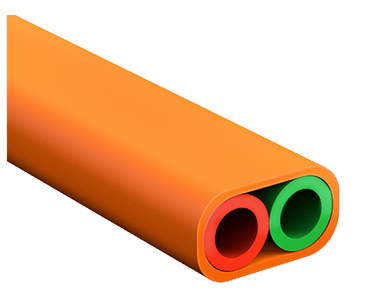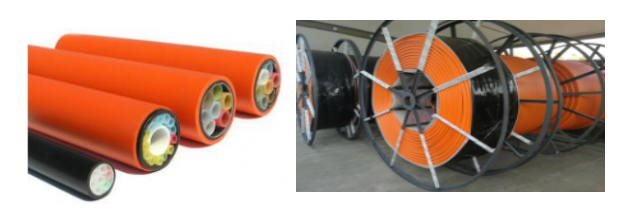Cluster tubes have the compressive and tensile strength to protect optical cables and flexibility, and are easy to bend or fix inside cabinets or enclosures. This article will provide some knowledge about cluster tubes.

What is a cluster tube?
Cluster tubes are also called protective microducts. This type of duct includes many micro ducts that are loosely or tightly packed together and with a sheath, much like optical cables without optical fibers. One or more ways to make micro ducts into cluster tubes with outer sheaths in a certain combination sequence can accommodate more pipeline resources in a limited space.

Cluster tube types
Cluster tubes are divided into DB (direct burial) and DI (direct installation).
DB cluster tube: The outer sheath is a strong high-density polyethylene HDPE that provides excellent physical environmental protection. An aluminum layer is added to provide additional strength (silicone-coated pipe, water-blocking tape, aluminum layer or fabric, two sheath layers, tracer wire, and pull rope).

DI cluster tube: The micro duct is surrounded by a layer of moisture-proof metal or non-metal tape and a black HDPE flexible sheath. DI ducts can be installed in pre-existing ducts or sub-ducts.

Features and Benefits
1. Microduct outer diameter 5-18mm
2. The inner wall is a smooth structure, and the silicon layer effectively reduces the friction coefficient of the inner wall
3. Can be used to expand the existing pipeline to maximize the pipeline capacity
4. Compressive strength and tensile strength
5. Convenient construction, saving time and engineering cost
Applications
A thin HDPE sheath surrounds the cluster tube. This design makes the cluster tube suitable for installation in outdoor direct burial or other existing ducts. In addition, cluster tubes are also used in FTTX networks.
Summary
Cluster tubes are a good way to get the most versatility from your current empty duct system. It has good mechanical properties and can provide adequate protection for optical cables.


